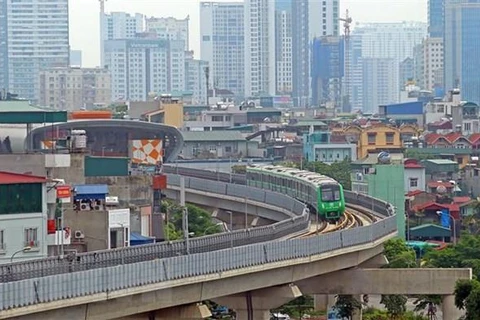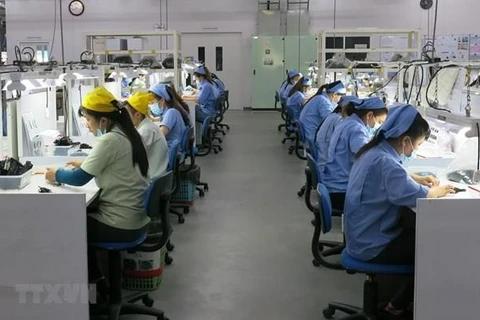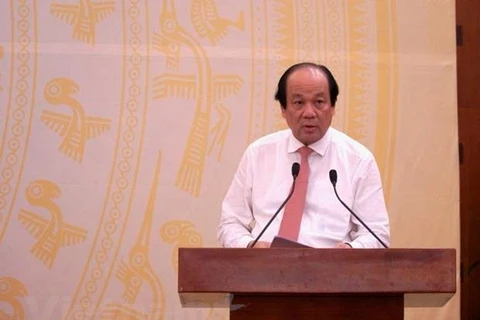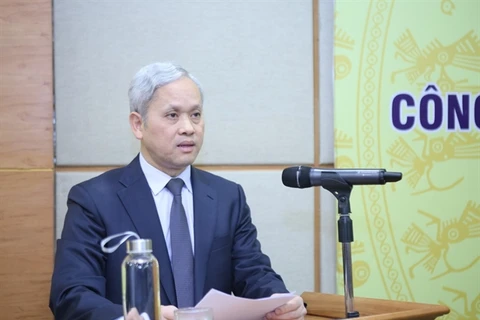Hanoi (VNA) – Vietnam’s economy has performed well in 2019, with GDP expanding by an estimated 6.8 percent, public debt reduced by nearly 8 percentage point of GDP since 2016, and a trade balance surplus for fourth year in a row, according to the World Bank (WB)’s report released on December 17.
The international financial institution described the results as remarkable in the context of global downturn.
The latest Taking Stock, the WB’s bi-annual economic report on Vietnam, emphasises the resilience of the Vietnamese economy. GDP growth has continued to be driven by a strong external sector with exports expanding by about 8 percent in 2019, nearly four times faster than the world average.
The country has also remained an attractive destination for foreign investors, with foreign direct investment (FDI) inflows averaging 3 billion USD per month. In addition, private consumption has emerged as an important contributor to GDP growth as the result of an expanding middle-income class and rising wages. Private firms also increased investment by 17 percent during the same period.
Prospects for the short to medium term are good as the World Bank forecasts a GDP growth rate of around 6.5 percent over the next few years. Vietnam’s economic fundamentals appear robust, and the government has built some fiscal space through its prudent fiscal policy.
However, the country is not completely immune to external shocks as demonstrated by the gradual decline in export growth from 21 percent to 8 percent between 2017 and 2019. This decline in export growth has been even more pronounced in non-US markets, up by only 3.6 percent during the first 11 months of 2019. Greenfield FDI has also slowed by about 30 percent over the past two years, even if it has been compensated by an increase in mergers and acquisitions.
To account for these external risks, and to bring an additional engine of growth to the economy, the report recommends making the development of a strong and dynamic private sector a priority. However, many firms operating in the domestic market face severe obstacles preventing their expansion, with the most pertinent being access to credit.
WB Country Director for Vietnam Ousmane Dione said that addressing the financing constraint of firms should receive the greatest attention from policy makers if Vietnam wants to continue on its trajectory of rapid and inclusive growth and reach high-income status in the coming decades.
The report advocates for the development of well-functioning capital markets as a foundation for Vietnam’s future prosperity. As experienced by many countries in the world, including in East Asia, well-functioning debt and equity markets can help finance the domestic productive sector and complement lending from the banking system and diversify sources of financing. They also contribute to the resilience of the financial system as a whole by ensuring deeper liquidity and diversifying risks.
The report also suggests five areas policy makers should focus on to advance the development of the capital markets: modernising the legal and regulatory foundation of the capital markets; improving governance and information disclosure; broadening the investor base; developing innovative products; and strengthening the government’s role in the development of long-term finance./.
VNA
























